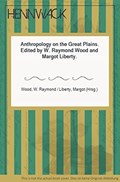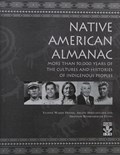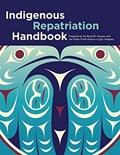Narrow Results By
- Adese, Jennifer 1
- Bastien, Betty 1
- Blondin, Walter; Blondin, George; Goose, Leanne; Mountain, Antoine; Stewart, Sarah; Yakeleya, Raymond; and Dene Elders; foreword by Blondin, Walter. 1
- Carlson-Manathara, Elizabeth and Rowe, Gladys 1
- Christie, Gordon 1
- Kovach, Margaret 1
- Manuel, Vera 1
- McKegney, Sam 1
- McLean, John 1
- Molyneaux, Brian L. 1
- Wakim Dennis, Yvonne; Hirschfelder, Arlene; and Rothenberger Flynn, Shannon 1
- Wall Kimmerer, Robin 1
The indians of Canada : their manners and customs
https://archives.whyte.org/en/permalink/catalogue25545
- Medium
- Library - Book (including soft-cover and pamphlets)
- Published Date
- 1970
- Author
- McLean, John
- Publisher
- Toronto : Coles Publishing Company
- Call Number
- 07.2 M22 1970
- Author
- McLean, John
- Publisher
- Toronto : Coles Publishing Company
- Published Date
- 1970
- Physical Description
- 351pages : ill., port
- Accession Number
- 2022.17
- Call Number
- 07.2 M22 1970
- Collection
- Archives Library
This material is presented as originally created; it may contain outdated cultural descriptions and
potentially offensive content.
Read more.
Anthropology on the Great Plains
https://archives.whyte.org/en/permalink/catalogue26190
- Medium
- Library - Book (including soft-cover and pamphlets)
- Published Date
- 1980
- Publisher
- Lincoln : University of Nebraska Press
- Call Number
- 07.2 W86a
- Responsibility
- Edited by W. Raymond Wood and Margot Liberty
- Publisher
- Lincoln : University of Nebraska Press
- Published Date
- 1980
- Physical Description
- vii, 306 pages : illustrations ; 27 cm
- Subjects
- Indigenous
- Indigenous Culture
- Indigenous Customs
- Indigenous People
- Indigenous Traditions
- Turtle Island
- History
- Abstract
- Native American tribes living on the Great Plains have long attracted the attention of Euro-American scholars, inspiring over the years a vast quantity of research. The contributors to this volume discuss and evaluate all the major works of scholarship devoted to the culture of Plains Indians, from the arrival of these peoples on the North American grasslands thousands of years ago, through their subsequent Village and High Plains lifeways, to their present-day adaption to reservation and urban life. Toghether, the twenty-two authors undertake a comprehensive survey of the state of anthropology on the Plains: what it has been, what it is now, and what it may offer theory and method in the future. -- From interior dustjacket
- Contents
- The Plains setting / B. Miles Gilbert -- The influence of Plains ethnography on the development of anthropological theory / E. Adamson Hoebel -- The Plains culture area concept / Richard Scaglion -- Prehistoric studies on the Plains / Alfred E. Johnson and W. Raymond Wood -- An overview of Great Plains physical anthropology / David V. Hughey -- Studies in Plains linguistics : a review / Robert C. Hollow and Douglas R. Parks -- Plains trade in prehistoric and protohistoric intertribal relations / W. Raymond Wood -- The ethnohistorical approach in Plains area studies / Mildred Mott Wedel and Raymond J. DeMallie -- Plains economic analysis : the Marxist complement / Alan M. Klein -- Morgan's problem : the influence of Plains ethnography on the ethnology of kinship / John H. Moore -- Social control on the Plains / Garrick Bailey -- The Sun Dance / Margot Liberty -- The Ghost Dance / Omer C. Stewart -- The Native American church / Omer C. Stewart -- Plains Indian art / Mary Jane Schneider -- Plains Indian music and dance / William K. Powers -- Psychological anthropology / Margot Liberty and Robert Morais --The formal education of Plains Indians / Janet Goldenstein Ahler -- Plains Indian women : an assessment / Katherine M. Weist -- Research in health and healing in the Plains / Luis S. Kemnitzer -- Peoples of the Plains / compiled by Douglas R. Parks, Margot Liberty, and Andrea Ferenci.
- ISBN
- 9780803247086
- Accession Number
- 2022.17
- Call Number
- 07.2 W86a
- Collection
- Archives Library
This material is presented as originally created; it may contain outdated cultural descriptions and
potentially offensive content.
Read more.
Mythology of the North American indian and Inuit nations
https://archives.whyte.org/en/permalink/catalogue25547
- Published Date
- 2003
- Author
- Molyneaux, Brian L.
- Publisher
- London : Southwater Publishing
- Call Number
- 07.2 m73m
- Author
- Molyneaux, Brian L.
- Publisher
- London : Southwater Publishing
- Published Date
- 2003
- Physical Description
- 96 pages
- Abstract
- An authoritative and accessible guide to the vivid and enthralling myths and legends of the United States and Canada -- From the publisher
- Contents
- A-to-Z Myths and Legends of North America ; Transformation ; The Living Sky ; Landscapes of Memory ; Spirits of Earth ; The Dark Side ; The Trickster ; Death & Afterlife ; The Strangers ; New Gods ; New Mythologies
- Accession Number
- 2022.17
- Call Number
- 07.2 m73m
- Collection
- Archives Library
This material is presented as originally created; it may contain outdated cultural descriptions and
potentially offensive content.
Read more.
Native American almanac : more than 50,000 years of the cultures and histories of indigenous peoples
https://archives.whyte.org/en/permalink/catalogue26189
- Medium
- Library - Book (including soft-cover and pamphlets)
- Published Date
- 2016
- Author
- Wakim Dennis, Yvonne; Hirschfelder, Arlene; and Rothenberger Flynn, Shannon
- Publisher
- Canton, MI : Visible Ink Press
- Call Number
- 07.2 D42n
- Publisher
- Canton, MI : Visible Ink Press
- Published Date
- 2016
- Physical Description
- xi, 643 pages : illustrations, maps ; 24 cm
- Abstract
- The impact of early encounters, past policies, treaties, wars, and prejudices toward America's Indigenous peoples is a legacy that continues to mark America. The history of the United States and Native Americans are intertwined. Agriculture, place names, and language have all been influenced by Native American culture. The stories and history of pre- and post-colonial Tribal Nations and peoples continue to resonate and informs the geographical boundaries, laws, language and modern life. From ancient rock drawings to today's urban living, the Native American Almanac: More Than 50,000 Years of the Cultures and Histories of Indigenous Peoples traces the rich heritage of indigenous people. It is a fascinating mix of biography, pre-contact and post-contact history, current events, Tribal Nations' histories, enlightening insights on environmental and land issues, arts, treaties, languages, education, movements, and more. Ten regional chapters, including urban living, cover the narrative history, the communities, land, environment, important figures, and backgrounds of each area's Tribal Nations and peoples. The stories of 345 Tribal Nations, biographies of 400 influential figures in all walks of life, Native American firsts, awards, and statistics are covered. Over 300 photographs and illustrations bring the text to life. The most complete and affordable single-volume reference work about Native American culture available today, the Native American Almanac is a unique and valuable resource devoted to illustrating, demystifying, and celebrating the moving, sometimes difficult, and often lost history of the indigenous people of America. Capturing the stories and voices of the American Indian of yesterday and today, it provides a range of information on Native American history, society, and culture. -- Publisher's description
- Contents
- Historical overview of Indian-White relations in the United States -- Northeast -- Southeast -- Midwest -- Northern plains -- Southern plains: Texas and Oklahoma -- The Great Basin and Rocky Mountains -- Southwest -- Pacific Northwest: Washington State and Oregon -- California -- Alaska -- Hawaii -- Urban -- Appendix A: Canada -- -- Appendix B: Mexico -- Appendix C: Caribbean -- Appendix D: Greenland -- Appendix E: Indigenous nations/groups in Native America Almanac -- Appendix F: Indian lands: definitions and explanations -- Appendix G: Indigenized English -- Appendix H: Indigeneity from sea to sea -- Appendix I: Selected indigeneity firsts: people, places, and things -- Appendix J: Native owned and operated museums -- Appendix K: The indigeneity of the Powwow -- Appendix L: Indigenous ancestry affiliation of some notable people.
- ISBN
- 9781578595075
- Accession Number
- 2022.17
- Call Number
- 07.2 D42n
- Collection
- Archives Library
This material is presented as originally created; it may contain outdated cultural descriptions and
potentially offensive content.
Read more.
Honouring the strength of Indian women : plays, stories, poetry
https://archives.whyte.org/en/permalink/catalogue25710
- Medium
- Library - Book (including soft-cover and pamphlets)
- Published Date
- 2019
- Author
- Manuel, Vera
- Publisher
- Winnipeg, Manitoba, Canada : University of Manitoba Press
- Call Number
- 07.2 M31h
- Author
- Manuel, Vera
- Responsibility
- Vera Manuel = Kulilu Pal ki, Edited by Michelle Coupal, Deanna Reder, Joanne Arnott, and Emalene A. Manuel ; introduction by Emalene A. Manuel ; afterwords by Michelle Coupal, Deanna Reder, and Joanne Arnott.
- Publisher
- Winnipeg, Manitoba, Canada : University of Manitoba Press
- Published Date
- 2019
- Physical Description
- xii, 391 pages, 8 unnumbered pages of plates : illustrations ; 22 cm
- Subjects
- Indigenous
- Indigenous Culture
- Indigenous Customs
- Indigenous Art
- Indigenous Peoples
- Indigenous Traditions
- Women
- Ktunaxa
- Secwepemc
- Abstract
- This critical edition delivers a unique and comprehensive collection of the works of Ktunaxa-Secwepemc writer and educator Vera Manuel, daughter of prominent Indigenous leaders Marceline Paul and George Manuel. A vibrant force in the burgeoning Indigenous theatre scene, Vera was at the forefront of residential school writing and did groundbreaking work as a dramatherapist and healer. Long before mainstream Canada understood and discussed the impact and devastating legacy of Canada's Indian residential schools, Vera Manuel wrote about it as part of her personal and community healing. She became a grassroots leader addressing the need to bring to light the stories of survivors, their journeys of healing, and the therapeutic value of writing and performing arts. A collaboration by four Indigenous writers and scholars steeped in values of Indigenous ethics and editing practices, the volume features Manuel's most famous play, "Strength of Indian Women"--First performed in 1992 and still one of the most important literary works to deal with the trauma of residential schools-along with an assemblage of plays, written between the late 1980s until Manuel's untimely passing in 2010, that were performed but never before published. The volume also includes three previously unpublished short stories written in 1988, poetry written over three decades in a variety of venues, and a 1987 college essay that draws on family and community interviews on the effects of residential schools. -- Provided by publisher.
- Contents
- Introduction / Emalene A. Manuel -- Plays. Strength of Indian women -- Song of the circle -- Journey through the past to the future -- Echoes of our Mothers' past -- Every warrior's song -- Stories. That grey building -- Theresa -- The letter -- The abyss -- Poetry. The storm -- Woman without a tongue -- Ghosts & predators -- L.A. Obsession song -- Addictions -- Lies -- Life abuse of girls -- The woman I could be -- Fools -- Loneliness -- Abused mothers, wounded fathers -- Hunger -- The Catholic Church -- Deadly legacy -- Keeping Secrets -- Forgiveness -- When I first came to know myself -- When my sister & I dance -- The girl who could catch fish with her hands -- Two brothers -- La Guerra -- Keepers in the dark -- Inheritance -- For the child who knew -- Never ever tell -- Ottawa -- The truth about colonization -- Justice -- Beric -- Christmas inside of me -- Spring fever -- Megcenetkwe -- Dying -- Afterwords. Narrative acts of truth and reconciliation: teaching the healing plays of Vera Manuel / by Michelle Coupal -- Embedded teachings: Vera Manuel's recovered short stories / Deanna Reder -- "Through poetry a community is brought together": Vera Manuel's poetry, poetry activism, and poetics / Joanne Arnott -- Appendix. Indians and residential school: a study of the breakdown of a culture / Vera Manuel
- Notes
- The "l " in Vera Manuel's (Kulilu Pal ki's) name on the title page appears as the International Phonetic Alphabet symbol for palatoalveolar click.
- ISBN
- 9780887558368
- Accession Number
- 2023.09
- Call Number
- 07.2 M31h
- Collection
- Archives Library
This material is presented as originally created; it may contain outdated cultural descriptions and
potentially offensive content.
Read more.
Canadian law and indigenous self-determination : a naturalist analysis
https://archives.whyte.org/en/permalink/catalogue25724
- Medium
- Library - Book (including soft-cover and pamphlets)
- Published Date
- 2019
- Author
- Christie, Gordon
- Publisher
- Toronto ; Buffalo ; London : University of Toronto Press
- Call Number
- 07.2 C46c
- Author
- Christie, Gordon
- Publisher
- Toronto ; Buffalo ; London : University of Toronto Press
- Published Date
- 2019
- Physical Description
- vi, 440 pages ; 23 cm
- Abstract
- For centuries, Canadian sovereignty has existed uneasily alongside forms of Indigenous legal and political authority. Canadian Law and Indigenous Self-Determination demonstrates how, over the last few decades, Canadian law has attempted to remove Indigenous sovereignty from the Canadian legal and social landscape. Adopting a naturalist analysis, Gordon Christie responds to questions about how to theorize this legal phenomenon, and how the study of law should accommodate the presence of diverse perspectives. Exploring the socially-constructed nature of Canadian law, Christie reveals how legal meaning, understood to be the outcome of a specific society, is being reworked to devalue the capacities of Indigenous societies. Addressing liberal positivism and critical postcolonial theory, Canadian Law and Indigenous Self-Determination considers the way in which Canadian jurists, working within a world circumscribed by liberal thought, have deployed the law in such a way as to attempt to remove Indigenous meaning-generating capacity. -- Provided by publisher.
- Contents
- Setting the stage -- Canadian law and its puzzles -- Differing understandings and the way forward -- Remarks on theorizing and method -- Problems with theorizing about the law -- Liberal positivism and aboriginal rights -- Characterizing and defining 'existing' aboriginal rights -- The place of aboriginal rights in Canada -- Postcolonial theory and aboriginal law.
- ISBN
- 9781442628991
- Accession Number
- P2023.12
- Call Number
- 07.2 C46c
- Collection
- Archives Library
This material is presented as originally created; it may contain outdated cultural descriptions and
potentially offensive content.
Read more.
Indigenous repatriation handbook
https://archives.whyte.org/en/permalink/catalogue26210
- Medium
- Library - Book (including soft-cover and pamphlets)
- Published Date
- 2019
- Publisher
- Victoria, BC : Royal British Columbia Museum
- Call Number
- 07.2 C69i
- Responsibility
- Prepared by Jisang Nika Collison, Sdaahl K'awaas Lucy Bell, and Lou-ann Neal
- Publisher
- Victoria, BC : Royal British Columbia Museum
- Published Date
- 2019
- Physical Description
- 162 pages ; 6 cm
- Abstract
- A reference for BC Indigenous communities and museums, created by and for Indigenous people working in repatriation. -- From back cover
- Contents
- 1. Introduction -- 2. Organizing a successful repatriation -- 3. Conducting research -- 4. Repatriation from the royal BC museum -- 5. Repatriation for other institutions -- 6. For institutions wishing to repatriate to Indigenous Peoples in BC -- 7. Case study: repatriation journey of the Haida Nation -- APPENDIX -- A. Glossary of terms -- B. Indigenous museums and cultural centres in Canada -- C. Organizational templates, procedures and examples -- D. Fundraising resouces -- E. Sample letters to museums -- F. Tips for planning for travel and transport -- G. Global museums with major indigenous collections from BC -- H. Resources on education in indigenous museology -- I. Frequently asked questions about repatriation -- J. Repatriation stories.
- ISBN
- 9780772673176
- Accession Number
- P2023.25
- Call Number
- 07.2 C69i
- Collection
- Archives Library
This material is presented as originally created; it may contain outdated cultural descriptions and
potentially offensive content.
Read more.
In good relation : history, gender, and kinship in indigenous feminisms
https://archives.whyte.org/en/permalink/catalogue25712
- Medium
- Library - Book (including soft-cover and pamphlets)
- Published Date
- 2020
- Publisher
- Winnipeg, Manitoba, Canada : University of Manitoba Press
- Call Number
- 07.2 N53i
- Responsibility
- Edited by Sarah Nickel and Amanda Fehr
- Publisher
- Winnipeg, Manitoba, Canada : University of Manitoba Press
- Published Date
- 2020
- Physical Description
- 260 pages : illustrations ; 23 cm
- Subjects
- Indigenous
- Indigenous Culture
- Indigenous Peoples
- Indigenous Traditions
- Women
- Feminism
- Gender
- Sexuality
- Abstract
- Over the past thirty years, a strong canon of Indigenous feminist literature has addressed how Indigenous women are uniquely and dually affected by colonialism and patriarchy. Indigenous women have long recognized that their intersectional realities were not represented in mainstream feminism, which was principally white, middle-class, and often ignored realities of colonialism. As Indigenous feminist ideals grew, Indigenous women became increasingly multi-vocal, with multiple and oppositional understandings of what constituted Indigenous feminism and whether or not it was a useful concept. Emerging from these dialogues are conversations from a new generation of scholars, activists, artists, and storytellers who accept the usefulness of Indigenous feminism and seek to broaden the concept. In Good Relation captures this transition and makes sense of Indigenous feminist voices that are not necessarily represented in existing scholarship. There is a need to further Indigenize our understandings of feminism and to take the scholarship beyond a focus on motherhood, life history, or legal status (in Canada) to consider the connections between Indigenous feminisms, Indigenous philosophies, the environment, kinship, violence, and Indigenous Queer Studies. Organized around the notion of "generations," this collection brings into conversation new voices of Indigenous feminist theory, knowledge, and experience. Taking a broad and critical interpretation of Indigenous feminism, it depicts how an emerging generation of artists, activists, and scholars are envisioning and invigorating the strength and power of Indigenous women. -- Provided by publisher
- Contents
- Introduction / Sarah Nickel -- Broadening indigenous feminisms. The uninvited / by Jana-Rae Yerxa -- Us / by Elaine McArthur -- Making matriarchs at Coqualeetza : Sto´:lo¯ women's politics and histories across generations / by Madeline Rose Knickerbocker -- Sa´mi feminist moments : decolonization and Indigenous feminism / by Astri Dankertsen -- "It just piles on, and piles on, and piles on" : young Indigenous women and the colonial imagination / by Tasha Hubbard with Joi T. Arcand, Zoey Roy, Darian Lonechild, and Marie Sanderson -- "Making an honest effort" : Indian homemakers' clubs and complex settler engagements / by Sarah Nickel -- Queer and two-spirit identities, and sexuality. Reclaiming traditional gender roles : a two-spirit critique / by Kai Pyle -- Reading Chrystos for feminisms that honour two-spirit erotics / by Aubrey Jean Hanson -- Naawenangweyaabeg Coming in : intersections of Indigenous sexuality and spirituality / by Chantal Fiola -- Morning star, and moon share the sky : (re)membering two-spirit identity through culture-centred HIV prevention curriculum for Indigenous youth / by Ramona Beltra´n, Antonia R.G. Alvarez, and Miriam M. Puga -- Multi-generational feminisms and kinship. Honouring our great-grandmothers : an ode to Caroline LaFramboise, twentieth-century Me´tis matriach / by Zoe Todd -- on anishinaabe parental kinship with black girl life : twenty-first century ([de]colonial) turtle island / by waaseyaa'sin christine sy with aja sy -- Toward an Indigenous relational aesthetics : making Native love, still / by Lindsay Nixon -- Conversations on Indigenous feminism / by Omeasoo Wa¯hpa¯siw and Louise Halfe -- These are my daughters / by Anina Major.
- ISBN
- 9780887558511
- Accession Number
- P2023.09
- Call Number
- 07.2 N53i
- Collection
- Archives Library
This material is presented as originally created; it may contain outdated cultural descriptions and
potentially offensive content.
Read more.
Plants, people, and places : the roles of ethnobotany and ethnoecology in Indigenous peoples' land rights in Canada and beyond
https://archives.whyte.org/en/permalink/catalogue25723
- Medium
- Library - Book (including soft-cover and pamphlets)
- Published Date
- 2020
- Publisher
- Montreal ; Kingston ; London ; Chicago : McGill-Queen's University Press
- Call Number
- 07.2 T85p
- Responsibility
- Edited by Nancy J. Turner
- Publisher
- Montreal ; Kingston ; London ; Chicago : McGill-Queen's University Press
- Published Date
- 2020
- Physical Description
- xxxii, 480 pages : illustrations, maps ; 25 cm.
- Subjects
- Indigenous
- Indigenous Culture
- Indigenous Traditions
- Indigenous Peoples
- Indigenous Customs
- Plants, Edible
- Plants, Medicinal
- Abstract
- For millennia, plants and their habitats have been fundamental to the lives of Indigenous Peoples--as sources of food and nutrition, medicines, and technological materials--and central to ceremonial traditions, spiritual beliefs, narratives, and language. While the First Peoples of Canada and other parts of the world have developed deep cultural understandings of plants and their environments, this knowledge is often underrecognized in debates about land rights and title, reconciliation, treaty negotiations, and traditional territories. Plants, People, and Places argues that the time is long past due to recognize and accommodate Indigenous Peoples' relationships with plants and their ecosystems. Essays in this volume, by leading voices in philosophy, Indigenous law, and environmental sustainability, consider the critical importance of botanical and ecological knowledge to land rights and related legal and government policy, planning, and decision making in Canada, the United States, Sweden, and New Zealand. Analyzing specific cases in which Indigenous Peoples' inherent rights to the environment have been denied or restricted, this collection promotes future prosperity through more effective and just recognition of the historical use of and care for plants in Indigenous cultures. A timely book featuring Indigenous perspectives on reconciliation, environmental sustainability, and pathways toward ethnoecological restoration, Plants, People, and Places reveals how much there is to learn from the history of human relationships with nature"-- Provided by publisher.
- Contents
- Introduction: Making a Place for Indigenous Botanical Knowledge and Environmental Values in Land-Use Planning and Decision Making / Nancy J. Turner, Pamela Spalding, and Douglas Deur (Moxmowisa) -- Living from the Land: Food Security and Food Sovereignty Today and into the Future / Jeannette Armstrong -- Nuuc aan ul Plants and Habitats as Reflected in Oral Traditions: Since Raven and Thunderbird Roamed / Marlene Atleo ( eh eh nah tuu kwiss) -- Tamarack and Tobacco / Aaron Mills -- Xa´xli'p Survival Territory: Colonialism, Industrial Land Use, and the Biocultural Sustainability of the Xa´xli'p within the Southern Interior of British Columbia / Arthur Adolph -- Understanding the Past for the Future: Archaeology, Plants, and First Nations' Land Use and Rights / Dana Lepofsky, Chelsey Geralda Armstrong, Darcy Mathews, and Spencer Greening -- Preparing Eden: Indigenous Land Use and European Settlement on Southern Vancouver Island / John Sutton Lutz -- A Place Called Pi´psell: An Indigenous Cultural Keystone Place, Mining, and Secwe´pemc Law / Marianne Ignace and Chief Ronald E. Ignace -- Traditional Plant Medicines and the Protection of Traditional Harvesting Sites / Letitia M. McCune and Alain Cuerrier -- From Traplines to Pipelines: Oil Sands and the Pollution of Berries and Sacred Lands from Northern Alberta to North Dakota / Linda Black Elk and Janelle Marie Baker -- The Legal Application of Ethnoecology: The Girjas Sami Village versus the Swedish State / Lars O¨stlund, Ingela Bergman, Camilla Sandstro¨m, and Malin Bra¨nnstro¨m -- Ta¯ne Mahuta: The Lord of the Forest in Aotearoa New Zealand, His Children, and the Law / Jacinta Ruru -- Cultivating the Imagined Wilderness: Contested Native American Plant Gathering Traditions in America's National Parks / Douglas Deur (Moxmowisa) and Justine E. James Jr -- Ki¯puka Kuleana: Restoring Reciprocity to Coastal Land Tenure and Resource Use in Hawai i / Monica Montgomery and Mehana Blaich Vaughan -- Right Relationships: Legal and Ethical Context for Indigenous Peoples' Land Rights and Responsibilities / Kelly Bannister -- Ethnoecology and Indigenous Legal Traditions in Environmental Governance / Deborah Curran and Val Napoleon -- Indigenous Environmental Stewardship: Do Mechanisms of Biodiversity Conservation Align with or Undermine It? / Monica E. Mulrennan and Ve´ronique Bussie`res -- Tsilhqot'in Nation Aboriginal Title: Ethnoecological and Ethnobotanical Evidence and the Roles and Obligations of the Expert Witness / David M. Robbins and Michael Bendle -- Plants, Habitats, and Litigation for Indigenous Peoples in Canada / Stuart Rush, QC -- Restorying Indigenous Landscapes: Community Restoration and Resurgence / Jeff Corntassel -- Partnerships of Hope: How Ethnoecology Can Support Robust Co-Management Agreements between Public Governments and Indigenous Peoples / Pamela Spalding -- "Passing It On": Renewal of Indigenous Plant Knowledge Systems and Indigenous Approaches to Education / Leigh Joseph (Styawat) -- On Resurgence and Transformative Reconciliation / James Tully -- Retrospective and Concluding Thoughts / Nancy J. Turner with E. Richard Atleo (Umeek) and John Ralston Saul -- Epilogue: Native Plants, Indigenous Societies, and the Land in Canada's Future / Douglas Deur (Moxmowisa), Nancy J. Turner (Galitsimg a), and Kim Recalma-Clutesi (Oqwilowgwa).
- ISBN
- 9780228001836
- Accession Number
- P2023.13
- Call Number
- 07.2 T85p
- Collection
- Archives Library
This material is presented as originally created; it may contain outdated cultural descriptions and
potentially offensive content.
Read more.
Living in Indigenous sovereignty
https://archives.whyte.org/en/permalink/catalogue25686
- Medium
- Library - Book (including soft-cover and pamphlets)
- Published Date
- 2021
- Author
- Carlson-Manathara, Elizabeth and Rowe, Gladys
- Publisher
- Halifax ; Winnipeg : Fernwood Publishing
- Call Number
- 07.2 C21l
- Responsibility
- Foreword by Aime´e Craft, Leona Star and Dawnis Kennedy
- Publisher
- Halifax ; Winnipeg : Fernwood Publishing
- Published Date
- 2021
- Physical Description
- 302 pages ; 23 cm
- Abstract
- This book advances the concept of living in Indigenous sovereignty as an ontological and relational framework for settlers, particularly white settlers, who wish to initiate or deepen their decolonial/anti-colonial work while living on Indigenous lands occupied by the Canadian state. Here, living in Indigenous sovereignty refers to living in accordance with the understanding that we are on Indigenous lands which contain their own stories, systems of governance, relationships, laws, knowledges, protocols, obligations, and opportunities which have been understood and practiced by Indigenous peoples since time immemorial. Living in Indigenous sovereignty means understanding that our responsibilities and opportunities as settlers on these lands involve learning and placing ourselves in accountable and loving relationship with Indigenous lands, peoples, and sovereignty. Based on a completed dissertation, the book enacts accountability and embodies living in Indigenous sovereignty by centering the work and perspectives of Indigenous scholars, Knowledge holders, and activists regarding settler colonialism and decolonization. Thus, the theoretical and practice perspectives that point to pathways of living in Indigenous sovereignty are based largely on Indigenous sources. This work also features life stories/narratives of white settler activists for whom anti-colonial and decolonial work is a major life focus. These stories are intended to serve as inspiration and guidance for white settlers who wish to initiate or deepen their anti-colonial and decolonial work. Ultimately, this book aims to contribute to decolonial social change, particularly in Canada. I believe Fernwood would be a great fit as a publisher of this book due to its focus on confronting oppression and exploitation toward creating a more socially just world. Scholarship regarding frameworks for settler roles in decolonization has been historically sparse, although it has increased in the past decade (see complementary books below). Although most of the ideas in this book have been present in various forms in activist and Indigenous circles, the book will provide a deep and accessible exploration of living in Indigenous sovereignty and what this entails, as well as some of the tensions present in the work. Further, the approach of using extended life narratives of decolonial settler activists as a way to inspire others and illustrate the principles of the work in practice is something I haven't yet seen in book form. -- Provided by publisher.
- Contents
- Introductions / Elizabeth Carlson-Manathara and Gladys Rowe -- Settler Colonialism and Resistance / Elizabeth Carlson-Manathara -- Introducing the Narratives / Elizabeth Carlson-Manathara with Aime´e Craft, Dawnis Kennedy, Leona Star, and Chickadee Richard -- Monique Woroniak / Monque Woroniak and Elizabeth Carlson-Manathara -- Murray Angus / Murray Angus and Elizabeth Carlson-Manathara -- Steve Heinrichs / Steve Heinrichs and Elizabeth Carlson-Manathara -- Franklin Jones / Elizabeth Carlson-Manathara and Anonymous -- Orienting Toward Indigenous Sovereignty / Elizabeth Carlson-Manathara -- Joy Eidse / Joy Eidse and Elizabeth Carlson-Manathara -- Adam Barker / Adam Barker and Elizabeth Carlson-Manathara -- Susanne McCrea McGovern / Susanne McCrea McGovern and Elizabeth Carlson-Manathara -- Kathi Avery Kinew / Kathi Avery Kinew and Elizabeth Carlson-Manathara -- Rick Wallace / Rick Wallace and Elizabeth Carlson-Manathara -- What Indigenous Peoples Have Asked of Us / Elizabeth Carlson-Manathara -- John Doe / Elizabeth Carlson-Manathara and Anonymous -- Silvia Straka / Silvia Straka with Elizabeth Carlson-Manathara -- Dave Bleakney / Dave Bleakney with Elizabeth Carlson-Manathara -- Victoria Freeman / Victoria Freeman and Elizabeth Carlson-Manathara -- Honourings / Gladys Rowe and Elizabeth Carlson-Manathara -- Conclusions / Elizabeth Carlson-Manathara and Gladys Rowe -- Afterword / Gladys Rowe, Sherry Copenance, Yvonne Pompana, and Chickadee Richard.
- ISBN
- 9781773632384
- Accession Number
- P2023.02
- Call Number
- 07.2 C21l
- Location
- Reading Room
- Collection
- Archives Library
This material is presented as originally created; it may contain outdated cultural descriptions and
potentially offensive content.
Read more.
Beyond the orange shirt story
https://archives.whyte.org/en/permalink/catalogue25692
- Medium
- Library - Book (including soft-cover and pamphlets)
- Published Date
- 2021
- Author
- Webstad, Phyllis
- Publisher
- Medicine Wheel Publishing
- Call Number
- 07.2 W39b
- Author
- Webstad, Phyllis
- Publisher
- Medicine Wheel Publishing
- Published Date
- 2021
- Physical Description
- 102 pages
- Abstract
- Beyond the Orange Shirt Story is a unique collection of truths that articulate the lives and experiences of some Residential School Survivors and their families. Compiled by Phyllis Webstad, Residential School Survivor and Founder of the Orange Shirt Day movement, this book will give readers an up-close look at what life was like for many Survivors -- before, during, and after their Residential School experiences. These personal Survivor accounts, relayed in a number of one on one interviews, are authentically shared in their own voices.-- Provided by Publisher
- Contents
- 1. Phyllis Webstad -- 2. Suzanne Edward Jim (Phyllis Webstad's great-grandmother) -- 3. Helena (Lena) Jack (Nee Billy) (Phyllis Webstad's grandmother) -- 4. Rose Wilson Nee Jack (Phyllis Webstad's mother) -- 5. Theresa Jack (Phyllis Webstad's auntie) -- 6. Hazel Agness Jack (Phyllis Webstad's auntie) -- 7. Jeremy Boston (Phyllis Webstad's son) -- 8. Mason and Blake Murphy (Phyllis Webstad's grandchildren) -- 9. Lynn Eberts (Phyllis Webstad's elementary school teacher) -- 10. Photos of Phyllis Webstad's family -- 11. St. Joseph's Mission Residential School.
- ISBN
- 9781989122754
- Accession Number
- P2022.14
- Call Number
- 07.2 W39b
- Collection
- Archives Library
This material is presented as originally created; it may contain outdated cultural descriptions and
potentially offensive content.
Read more.
The arts of Indigenous health and well-being
https://archives.whyte.org/en/permalink/catalogue25714
- Medium
- Library - Book (including soft-cover and pamphlets)
- Published Date
- 2021
- Publisher
- Winnipeg, Manitoba, Canada : University of Manitoba Press
- Call Number
- 07.2 S9t
- Responsibility
- Edited by Nancy Van Styvendale, J. D. McDougall, Robert Henry, and Robert Alexander Innes
- Publisher
- Winnipeg, Manitoba, Canada : University of Manitoba Press
- Published Date
- 2021
- Physical Description
- 272 pages : illustrations ; 23 cm
- Subjects
- Indigenous
- Indigenous Culture
- Indigenous Traditions
- Indigenous Peoples
- Health
- Oral History
- Medicine
- Abstract
- Drawing attention to the ways in which creative practices are essential to the health, well-being, and healing of Indigenous peoples, The Arts of Indigenous Health and Well-Being addresses the effects of artistic endeavour on the "good life", or mino-pimatisiwin in Cree, which can be described as the balanced interconnection of physical, emotional, spiritual, and mental well-being. In this interdisciplinary collection, Indigenous knowledges inform an approach to health as a wider set of relations that are central to well-being, wherein artistic expression furthers cultural continuity and resilience, community connection, and kinship to push back against forces of fracture and disruption imposed by colonialism. The need for healing--not only individuals but health systems and practices--is clear, especially as the trauma of colonialism is continually revealed and perpetuated within health systems. The field of Indigenous health has recently begun to recognize the fundamental connection between creative expression and well-being. This book brings together scholarship by humanities scholars, social scientists, artists, and those holding experiential knowledge from across Turtle Island to add urgently needed perspectives to this conversation. Contributors embrace a diverse range of research methods, including community-engaged scholarship with Indigenous youth, artists, Elders, and language keepers. The Arts of Indigenous Health and Well-Being demonstrates the healing possibilities of Indigenous works of art, literature, film, and music from a diversity of Indigenous peoples and arts traditions. This book will resonate with health practitioners, community members, and any who recognize the power of art as a window, an entryway to access a healthy and good life. -- Provided by publisher.
- Contents
- "Art for life's sake": approaches to indigenous arts, health, and well-being / Nancy Van Styvendale, J.D. McDougall, Robert Henry, and Robert Alexander Innes -- What this pouch holds / Gail MacKay -- Baskets, birchbark scrolls, and maps of land: indigenous making practices as oral historiography / Andrea Riley-Mukavetz -- For Kaydence and her cousins: health and happiness in cultural legacies and contemporary contexts / Adesola Akinleye -- Stories and staying power: artmaking as (re)source of cultural resilience and well-being for Panniqtumiut / Alena Rosen -- Healthy connections: facilitator's perceptions of programming linking arts and wellness with indigenous youth / Mamata Pandey, Nuno F. Ribeiro, Warren Linds, Linda M. Goulet, Jo-Ann Episkenew, and Karen Schmidt -- The doubleness of sound in Canada's Indian residential schools / Beverley Diamond -- Kissed by lightning: mediating Haudenosaunee traditional teachings through film / Nicholle Dragone -- Minobimaadiziwinke (creating a good life): native bodies healing / Petra Kuppers and Margaret Noodin -- Body counts: war, pesticides, and queer spirituality in Cherri´e Moraga's Heroes and saints / Desiree Hellegers -- The language of soul and ceremony / Louise Halfe -- Sa^kihiwa^win: land's overflow into the space-tial "otherwise" / Karyn Recollet.
- ISBN
- 9780887559396
- Accession Number
- P2023.09
- Call Number
- 07.2 S9t
- Collection
- Archives Library
This material is presented as originally created; it may contain outdated cultural descriptions and
potentially offensive content.
Read more.
Sharing the land, sharing a future
https://archives.whyte.org/en/permalink/catalogue25715
- Medium
- Library - Book (including soft-cover and pamphlets)
- Published Date
- 2021
- Publisher
- Winnipeg, Manitoba, Canada : University of Manitoba Press
- Call Number
- 07.2 G76s
- Responsibility
- edited by Katherine A. H. Graham and David Newhouse
- Publisher
- Winnipeg, Manitoba, Canada : University of Manitoba Press
- Published Date
- 2021
- Physical Description
- xi, 499 pages : illustrations, maps ; 23 cm
- Abstract
- Sharing the Land, Sharing a Future looks to both the past and the future as it examines the foundational work of the Royal Commission on Aboriginal Peoples (RCAP) and the legacy of its 1996 report. It assesses the Commission's influence on subsequent milestones in Indigenous-Canada relations and considers our prospects for a constructive future. RCAP's five-year examination of the relationships of First Nations, Metis, and Inuit peoples to Canada and to non-Indigenous Canadians resulted in a new vision for Canada and provided 440 specific recommendations, many of which informed the subsequent work of the Truth and Reconciliation Commission of Canada (TRC). Considered too radical and difficult to implement, RCAP's recommendations were largely ignored, but the TRC reiterates that longstanding inequalities and imbalances in Canada's relationship with Indigenous peoples remain and quite literally calls us to action. With reflections on RCAP's legacy by its co-chairs, leaders of national Indigenous organizations and the Minister of Indigenous Crown Relations, and leading academics and activists, this collection refocuses our attention on the groundbreaking work already performed by RCAP. Organized thematically, it explores avenues by which we may establish a new relationship, build healthy and powerful communities, engage citizens, and move to action. -- Provided by publisher.
- Contents
- FOREWORD "We Are All Here to Stay": The Sharing the Land, Sharing a Future Forum Marking the Twentieth Anniversary of RCAP / Marlene Brant Castellano and Frederic Wien -- INTRODUCTION -- Charting a Way Forward / Katherine A.H. Graham and David Newhouse -- PART 1: SETTING THE SCENE FOR A NEW NATION-TO NATION RELATIONSHIP -- Completing Confederation: The Necessary Foundation / Frances Abele, Erin Alexiuk, Satsan (Herb George) and Catherine MacQuarrie -- Twenty Years Later: The RCAP Legacy in Indigenous Health System Governance--What about the Next Twenty? / Yvonne Boyer, Jose´e Lavoie, Derek Kornelsen, and Jeff Reading -- PART 2: CREATING THE VISION FOR A NEW NATION-TO_NATION RELATIONSHIP -- Address by René Dussault, Co-Chair, Royal Commission on Aboriginal Peoples -- Address by Georges Erasmus, Co-Chair, Royal Commission on Aboriginal Peoples -- Address by Perry Bellegarde, National Chief, Assembly of First Nations -- Address by Natan Obed, President, Inuit Tapiriit Kanatami -- Address by Clément Chartier, President, Me´tis National Council -- Address by Robert Bertrand, National Chief, Congress of Aboriginal Peoples -- Address by Francyne Joe, President, Native Women's Association of Canada -- Address by Carolyn Bennett, Minister of Indigenous and Northern Affairs Canada -- PART 3: POWERFUL COMMUNITIES, HEALTHY COMMUNITIES -- Thunderbird Is Rising: Indigenizing Education in Canada / Jo-ann Archibald Q'um Q'um Xiiem and Jan Hare-- Insights into Community Development in First Nations: A Poverty Action Research Project / Jennifer S. Dockstator, Jeff S. Denis, Frederic Wien, Gerard Duhaime, Mark S. Dockstator, David Newhouse, Wanda Wuttunee, Charlotte Loppie, John Loxley, Warren Weir, Eabametoong First Nation, Misipawtisik Cree First Nation, Opiticiwan Atikamekw Firs Nation, Sipekne'katik First Nation, and T'it'q'et -- Indigenous Economic Development with Tenacity / Wanda Wutunee, Fredric Wien, and David Newhouse -- Powerful Communities, Healthy Communities: A Twenty-Five Year Journey of Healing and Wellness / Caroline l. Tait, Devon Napope, Amy Bombay, William Mussell, First Peoples First Person, and Canadian Depression Research and Intervention Network -- Cultural Safety / Carrie Bourassa, Eric Olesen, Sibyl Diver, and Janet McElhaney -- What Will It Take? Ending the Canadian Government's Chronic Failure to Do Better for First Nations Children and Families When It Knows Better / Cindy Blackstock -- Art of Healing and Reconciliation: From Time Immemorial through RCAP, the TRC, and Beyond / Jonathan Dear -- PART 4: MOVING TO ACTION -- Engaging Citizens in Indigenous-Non-Indigenous Relations / Lynne Davfs and Chris Hillier -- SSHRC and the Conscientious Community: Reflecting and Acting on Indigenous Research and Reconciliation in Response to CTA 65 / Aaron Franks -- Canada's Aboriginal Policy and the Politics of Ambivalence: A Policy Tools Perspective / Daniel Sale´e and Carole Le´vesque -- Executive Summary: Canadian Public Opinion on Aboriginal Peoples / Michael Adams, The Environics Institute -- Conclusion: What's the Way Forward? / Katherine A.H. Graham and David Newhouse -- Appendix : Sharing the Land, Sharing a Future Forum Oversight Committee.
- Notes
- Selected revised papers presented at a conference, the Royal Commission on Aboriginal Peoples Forum, "Hear Our Voice", in November, 2016, held in Winnipeg.
- ISBN
- 9780887558689
- Accession Number
- P2023.09
- Call Number
- 07.2 G76s
- Collection
- Archives Library
This material is presented as originally created; it may contain outdated cultural descriptions and
potentially offensive content.
Read more.
Carrying the burden of peace : reimagining Indigenous masculinities through story
https://archives.whyte.org/en/permalink/catalogue25728
- Medium
- Library - Book (including soft-cover and pamphlets)
- Published Date
- 2021
- Author
- McKegney, Sam
- Publisher
- Regina, Saskatchewan, Canada : University of Regina Press
- Call Number
- 07.2 M19c
- Author
- McKegney, Sam
- Publisher
- Regina, Saskatchewan, Canada : University of Regina Press
- Published Date
- 2021
- Physical Description
- xxxiii, 263 pages : illustrations ; 24 cm
- Subjects
- Indigenous
- Indigenous Culture
- Indigenous Customs
- Indigenous Peoples
- Indigenous Traditions
- Masculinity
- Canada
- History
- Abstract
- Through rigorous engagement with Indigenous literary art, Carrying the Burden of Peace highlights the decolonial potential of Indigenous masculinities. Can a critical examination of Indigenous masculinities be an honour song--one that celebrates rather than pathologizes; one that seeks diversity and strength; one that overturns heteropatriarchy without centering settler colonialism? Can a critical examination of Indigenous masculinities even be creative, inclusive, erotic? Carrying the Burden of Peace answers affirmatively. Countering the perception that masculinity has been so contaminated as to be irredeemable, the book explores Indigenous literary art for understandings of masculinity that exceed the impoverished inheritance of colonialism. Carrying the Burden of Peace weaves together stories of Indigenous life, love, eroticism, pain, and joy to map the contours of diverse, empowered, and non-dominant Indigenous masculinities. It is from here that a more balanced world may be pursued. -- Provided by publisher.
- Contents
- Indigenous masculinities and story -- Shame and deterritorialization -- Journeying back to the body -- De(f/v)iant generosity: gender and the gift -- Masculinity and kinship -- Naked and dreaming forward: a conclusion.
- ISBN
- 9780889777934
- Accession Number
- P2023.15
- Call Number
- 07.2 M19c
- Collection
- Archives Library
This material is presented as originally created; it may contain outdated cultural descriptions and
potentially offensive content.
Read more.
Indigenous methodologies : characteristics, conversations, and contexts
https://archives.whyte.org/en/permalink/catalogue25730
- Medium
- Library - Book (including soft-cover and pamphlets)
- Published Date
- 2021
- Author
- Kovach, Margaret
- Publisher
- Toronto ; Buffalo ; London : University of Toronto Press
- Call Number
- 07.2 K84i
- Author
- Kovach, Margaret
- Publisher
- Toronto ; Buffalo ; London : University of Toronto Press
- Published Date
- 2021
- Physical Description
- xii, 313 pages : illustrations ; 23 cm
- Abstract
- An innovative and important contribution to Indigenous research approaches, this revised second edition provides a framework for conducting Indigenous methodologies, serving as an entry point to learn more broadly about Indigenous research. -- Provided by publisher.
- Contents
- Prologue: opening the circle -- Introduction -- Part One: Starting Indigenous methodologies -- Indigenous methodologies and qualitative inquiry -- Indigenous conceptual framing in Indigenous methodologies -- Part Two: Four foundations: Indigenous conceptual framing in Indigenous methodologies -- Epistemology and research: centring Indigenous knowledges -- Indigenous ethics and axiology: miny´o (A Good Way) -- Engaging with the Indigenous community in research -- Preparations: situating self, culture, and purpose in Indigenous methodologies -- Part Three: Applying Indigenous methodologies -- Story and method in Indigenous methodologies -- Indigenous theorizing -- Analysing, interpreting, and meaning making -- Presenting findings, metamorphic framing, and representation -- Oral dissemination and capacity building in Indigenous methodologies -- Part Four: Indigenous methodologies strong -- Conclusion: decolonizing the academy through asserting Indigenous methodologies -- Closing circle words and an epilogue.
- ISBN
- 9781487525644
- Accession Number
- P2023.15
- Call Number
- 07.2 K84i
- Collection
- Archives Library
This material is presented as originally created; it may contain outdated cultural descriptions and
potentially offensive content.
Read more.
We remember the coming of the white man
https://archives.whyte.org/en/permalink/catalogue26188
- Medium
- Library - Book (including soft-cover and pamphlets)
- Published Date
- 2021
- Author
- Blondin, Walter; Blondin, George; Goose, Leanne; Mountain, Antoine; Stewart, Sarah; Yakeleya, Raymond; and Dene Elders; foreword by Blondin, Walter.
- Publisher
- Calgary, Alberta, Canada : Durvile & UpRoute Books
- Call Number
- 07.2 St4w
- Responsibility
- Edited by Sarah Stewart and Raymond Yakeleya
- Publisher
- Calgary, Alberta, Canada : Durvile & UpRoute Books
- Published Date
- 2021
- Physical Description
- xiii, 273 pages : illustrations ; 23 cm + 1 videodisc (4 3/4 in.)
- Subjects
- Dene
- Indigenous
- Indigenous Culture
- Indigenous People
- Indigenous Customs
- Language
- Non-fiction
- Oral History
- Abstract
- Chapters are transcripts of oral histories from the early twentieth century, by ten elders of the Dene people, about the early days of fur trading, guns, and missionaries; their dismay about the way oil and uranium discoveries and pipelines were handled on their land; and the emotional fallout of the signing of Treaty 11.
- Contents
- Preface / Raymond Yakeleya -- Part I, Reflections. Foreward, Walter Blondin -- Treaty 11, Sarah Stewart -- We remember, Raymond Yakeleya -- The Dene nation / Sarah Stewart -- The Métis experience / Colette Poitras -- Part II, The elders remember. The elders / Elizabeth Yakeleya, Sarah Simon, Mary Wilson, Joe Blondin, John Blondin, Isadore Yukon, Johnny Kaye, Jim Edwards Sittichinli, Peter Thompson, Andrew Kunnizzi -- Early days -- Fur, guns, contact -- Family life -- Boat time -- Missionaries -- Oil discovery -- Treaty 11 -- The sickness -- Uranium -- First machines -- The mad trapper -- Canol road -- Mackenzie Valley pipeline -- Time of change -- Part III Stories from the people. Tutichak, Leanne Goose -- How the muskrat created the world / Antoine Mountain, Maurice Mendo -- The slingshot and the songbird / Raymond Yakeleya -- In the land of the Na?àcho / George Blondin -- The drums / George Blondin -- When the white people came / George Blondin -- Acknowledgments -- Authors -- The spirit of nature series.
- Notes
- Companion DVD includes "We remember the coming of the white man" directed by Raymond Yakeleya, 1978, 55 min. Remastered and produced in 2020. Includes director's commentary.
- ISBN
- 9781988824635
- Accession Number
- P2022.14
- Call Number
- 07.2 St4w
- Collection
- Archives Library
This material is presented as originally created; it may contain outdated cultural descriptions and
potentially offensive content.
Read more.
Braiding sweetgrass for young adults : indigenous wisdom, scientific knowledge, and the teachings of plants
https://archives.whyte.org/en/permalink/catalogue25691
- Medium
- Library - Book (including soft-cover and pamphlets)
- Published Date
- 2022
- Author
- Wall Kimmerer, Robin
- Publisher
- Minneapolis : Zest Books
- Call Number
- 07.2 W15s
- Author
- Wall Kimmerer, Robin
- Responsibility
- Adapted by Monique Gray Smith ; Illustrations by Nicole Neidhardt
- Publisher
- Minneapolis : Zest Books
- Published Date
- 2022
- Physical Description
- 303 pages : illustrations ; 22 cm
- Abstract
- Botanist Robin Wall Kimmerer's best-selling book Braiding Sweetgrass is adapted for a young adult audience by children's author Monique Gray Smith, bringing Indigenous wisdom, scientific knowledge, and the lessons of plant life to a new generation.-- Provided by publisher.
- Contents
- Meeting sweetgrass. An invitation to remember ; Skywoman falling ; Wiingaashk -- Planting sweetgrass. The council of pecans ; The gift of strawberries ; An offering ; Asters and goldenrod -- Tending sweetgrass. Maple sugar moon ; Witch hazel ; Allegiance to gratitude -- Picking sweetgrass.Epiphany in the beans ; The three sisters ; Wisgaak Gokpenagen : a black ash basket ; Mishkos Kenomagwen : the teachings of grass ; Maple nation : a citizenship guide ; The honorable harvest -- Braiding sweetgrass. In the footsteps of Nanabozho : becoming indigenous to place ; Sitting in a circle ; Burning cascade head ; Putting down roots ; Old-growth children -- Burning sweetgrass. Windigo footprints People of corn, people of light ; Shkitagen : People of the seventh fire ; Defeating Windigo.
- ISBN
- 9781728458991
- Accession Number
- P2023.03
- Call Number
- 07.2 W15s
- Collection
- Archives Library
This material is presented as originally created; it may contain outdated cultural descriptions and
potentially offensive content.
Read more.
Voicing identity : cultural appropriation and Indigenous issues
https://archives.whyte.org/en/permalink/catalogue25701
- Medium
- Library - Book (including soft-cover and pamphlets)
- Published Date
- 2022
- Publisher
- Toronto ; Buffalo ; London : University of Toronto Press
- Call Number
- 07.2 B94v
- Responsibility
- Edited by John Borrows and Kent McNeil
- Publisher
- Toronto ; Buffalo ; London : University of Toronto Press
- Published Date
- 2022
- Physical Description
- vi, 328 pages : illustrations ; 24 cm
- Abstract
- Written by leading Indigenous and non-Indigenous scholars, Voicing Identity examines the issue of cultural appropriation in the contexts of researching, writing, and teaching about Indigenous peoples. This book grapples with the question: who is qualified to engage in these activities and how can this be done appropriately and respectfully? The authors address these questions from their own individual perspectives and experiences, often revealing personal struggles and their ongoing attempts to resolve them. There is diversity in perspectives and approaches, but also a common goal: to conduct research and teach in respectful ways that enhance understanding of Indigenous histories, cultures, and rights, and promote reconciliation between Indigenous and non-Indigenous peoples. Bringing together contributors with diverse backgrounds and unique experiences, Voicing Identity will be of interest to students and scholars studying Indigenous issues as well as anyone seeking to engage in the work of making Canada a model for just relations between the original peoples and newcomers.-- Provided by publisher.
- Contents
- Introduction / John Borrows and Kent McNeil -- 1. Su-taxwiye: Keeping My Name Clean / Sarah Morales -- 2. At the Corner of Hawks and Powell: Settler Colonialism, Indigenous People, and the Conundrum of Double Permanence / Keith Thor Carlson -- 3. Look at Your "Pantses": The Art of Wearing and Representing Indigenous Culture as Performative Relationship / Aime´e Craft -- 4. Indigenous Legal Traditions, De-sacralization, Re-sacralization, and the Space for Not-Knowing / Hadley Friedland -- 5. Mino-audjiwaewin: Choosing Respect, Even in Times of Conflict / Lindsay Borrows -- 6. "How Could You Sleep When Beds Are Burning?" Cultural Appropriation and the Place of Non-Indigenous Academics / Felix Hoehn -- 7. Who Should Teach Indigenous Law? / Karen Drake and A. Christian Airhart -- 8. Reflections on Cultural Appropriation / Michael Asch -- 9. Turning Away from the State: Cultural Appropriation in the Shadow of the Courts / John Borrows -- 10. Voice and Indigenous Rights from a Non-Indigenous Perspective / Robert Hamilton -- 11. Guided by Voices? Perspective and Pluralism in the Constitutional Order / Joshua Ben David Nichols -- 12. NONU WEL,WEL TI,A´ NE T ,E E : Our Canoe Is Really Tippy / kQwa'st'not and Hannah Askew -- 13. Sharp as a Knife: Judge Begbie and Reconciliation / Hamar Foster -- 14. On Getting It Right the First Time: Researching the Constitution Express / Emma Feltes -- 15. Confronting Dignity Injustices / Sa'ke'j Henderson
- ISBN
- 9781487544683
- Accession Number
- P2023.10
- Call Number
- 07.2 B94v
- Collection
- Archives Library
This material is presented as originally created; it may contain outdated cultural descriptions and
potentially offensive content.
Read more.
Exactly what I said : translating words and worlds
https://archives.whyte.org/en/permalink/catalogue25707
- Medium
- Library - Book (including soft-cover and pamphlets)
- Published Date
- 2022
- Author
- Yeoman, Elizabeth
- Publisher
- Winnipeg, Manitoba, Canada : University of Manitoba Press
- Call Number
- 07.2 Y4e
- Author
- Yeoman, Elizabeth
- Publisher
- Winnipeg, Manitoba, Canada : University of Manitoba Press
- Published Date
- 2022
- Physical Description
- 276 pages : illustrations, map ; 23 cm
- Subjects
- Indigenous
- Indigenous Culture
- Indigenous Peoples
- Indigenous Traditions
- Language
- Translation
- Abstract
- 'You don't have to use the exact same words.... But it has to mean exactly what I said.' Thus began the ten-year collaboration between Innu elder and activist Tshaukuesh Elizabeth Penashue and Memorial University professor Elizabeth Yeoman that produced the celebrated Nitinikiau Innusi: I Keep the Land Alive, an English-language edition of Penashue's journals, originally written in Innu-aimun during her decades of struggle for Innu sovereignty. Exactly What I Said: Translating Words and Worlds reflects on that collaboration and what Yeoman learned from it. It is about naming, mapping, and storytelling; about photographs, collaborative authorship, and voice; about walking together on the land and what can be learned along the way. Combining theory with personal narrative, Yeoman weaves together ideas, memories, and experiences--of home and place, of stories and songs, of looking and listening--to interrogate the challenges and ethics of translation. Examining what it means to relate whole worlds across the boundaries of language, culture, and history, Exactly What I Said offers an accessible, engaging reflection on respectful and responsible translation and collaboration.-- Provided by publisher.
- Contents
- Introduction -- Mapping -- Walking -- Stories -- Looking -- Signs -- Literacies -- Listening -- Songs -- Wilderness
- ISBN
- 9780887552731
- Accession Number
- P2023.07
- Call Number
- 07.2 Y4e
- Collection
- Archives Library
This material is presented as originally created; it may contain outdated cultural descriptions and
potentially offensive content.
Read more.
Aboriginal TM : the cultural and economic politics of recognition
https://archives.whyte.org/en/permalink/catalogue25713
- Medium
- Library - Book (including soft-cover and pamphlets)
- Published Date
- 2022
- Author
- Adese, Jennifer
- Publisher
- Winnipeg, Manitoba, Canada : University of Manitoba Press
- Call Number
- 07.2 A3a
- Author
- Adese, Jennifer
- Publisher
- Winnipeg, Manitoba, Canada : University of Manitoba Press
- Published Date
- 2022
- Physical Description
- x, 260 pages : illustrations ; 24 cm
- Subjects
- Indigenous
- Indigenous Culture
- Indigenous People
- Indigenous Traditions
- Tourism
- Language
- Politics
- Abstract
- In Aboriginal™, Jennifer Adese explores the origins, meaning, and usage of the term "Aboriginal" and its displacement by the word "Indigenous." In the Constitution Act, 1982, the term's express purpose was to speak to the "aboriginal rights" acknowledged in Section 35(1). Yet in the wake of the Constitution's passage, Aboriginal, in its capitalized form, became far more closely aligned with Section 35(2)'s interpretation of which specific groups held those rights, and was increasingly used to describe and categorize people. More than simple legal and political vernacular, the term Aboriginal (capitalized or not) has had real-world consequences for the people it defined. Aboriginal™ argues the term was a tool used to advance Canada's cultural and economic assimilatory agenda throughout the 1980s until the mid-2010s. Moreover, Adese illuminates how the word engenders a kind of "Aboriginalized multicultural" brand easily reduced to and exported as a nation brand, economic brand, and place brand--at odds with the diversity and complexity of Indigenous peoples and communities. In her multi-disciplinary research, Adese examines the discursive spaces and concrete sites where Aboriginality features prominently: the Constitution Act, 1982; the 2010 Vancouver Olympics; the "Aboriginal tourism industry"; and the Vancouver International Airport. Reflecting on the term's abrupt exit from public discourse and the recent turn toward Indigenous, Indigeneity, and Indigenization, Aboriginal™ offers insight into Indigenous-Canada relations, reconciliation efforts, and current discussions of Indigenous identity, authenticity, and agency. -- Provided by publisher.
- Contents
- Introduction -- 1. Aboriginal, aboriginality, aboriginalism, aboriginalization: what's in a word? -- Aboriginalized multiculturalism tm: Canada's olympic national brand -- Selling Aboriginal experiences and authenticity: Canadian and Aboriginal tourism -- Marketing aboriginality and the branding of place: the case of Vancouver international airport -- Conclusion: thoughts on the end of aboriginalization and the turn to indigenization.
- Notes
- Title appears with the trademark symbol after the word "Aboriginal".
- ISBN
- 9781772840056
- Accession Number
- P2023.09
- Call Number
- 07.2 A3a
- Collection
- Archives Library
This material is presented as originally created; it may contain outdated cultural descriptions and
potentially offensive content.
Read more.


















